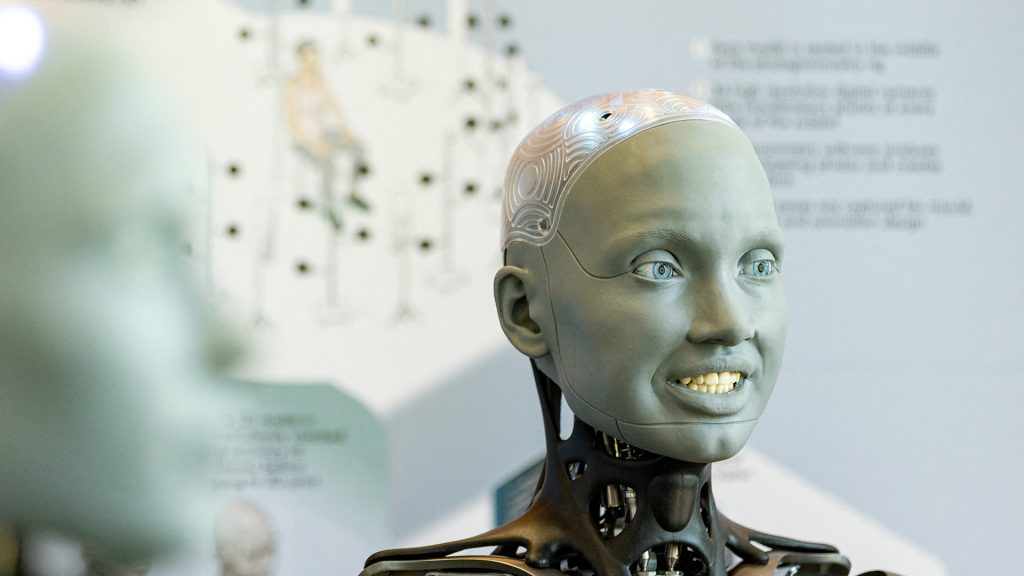Artificial intelligence (AI) is rapidly emerging as a transformative technology with the potential to reshape industries, economies, and societies. Trillions of dollars are being invested globally in AI research and development, reflecting the immense expectations surrounding its capabilities. Proponents envision a future where AI-powered automation boosts productivity, fuels economic growth, and revolutionizes various sectors, from healthcare and manufacturing to finance and transportation. However, alongside this optimism, concerns are mounting regarding AI’s potential downsides, including job displacement, exacerbation of inequality, and the ethical implications of increasingly autonomous systems. This dichotomy between potential benefits and risks necessitates a thorough examination of AI’s trajectory and a proactive approach to governance to ensure its responsible development and deployment.
The allure of AI stems from its ability to automate complex tasks, analyze massive datasets, and generate insights that were previously inaccessible. In manufacturing, AI-powered robots can enhance efficiency and precision, leading to increased output and reduced costs. In healthcare, AI algorithms can analyze medical images, predict patient outcomes, and personalize treatment plans. In finance, AI can detect fraudulent transactions, assess credit risks, and optimize investment strategies. These are just a few examples of how AI is poised to transform various industries. The projected economic impact of AI is substantial, with estimates suggesting trillions of dollars in added value to the global economy over the next decade. This potential for economic growth has fueled the massive investment in AI research and development, with both established tech giants and emerging startups vying for a stake in this nascent industry.
However, the narrative surrounding AI is not without its skeptics. A growing chorus of voices is raising concerns about the potential downsides of widespread AI adoption. One of the most pressing concerns is the potential for job displacement. As AI-powered automation becomes more sophisticated, it could displace human workers in various sectors, leading to widespread unemployment and exacerbating existing inequalities. While some argue that AI will create new jobs, the nature and skill requirements of these jobs remain uncertain, raising concerns about the ability of displaced workers to transition to these new roles. Furthermore, the concentration of AI development and deployment in the hands of a few powerful tech companies raises concerns about the equitable distribution of AI’s benefits. If the economic gains from AI are not shared broadly, it could deepen existing societal divides and create new forms of inequality.
Beyond job displacement and economic inequality, ethical considerations are also at the forefront of the AI debate. As AI systems become more autonomous, questions arise about their decision-making processes, accountability, and potential biases. AI algorithms are trained on vast datasets, and if these datasets reflect existing societal biases, the resulting AI systems may perpetuate or even amplify these biases. This raises concerns about fairness, transparency, and the potential for discriminatory outcomes in areas such as hiring, lending, and criminal justice. Furthermore, the increasing use of AI in surveillance and facial recognition technologies raises concerns about privacy and civil liberties. Striking a balance between leveraging AI’s potential and mitigating its risks requires careful consideration of these ethical implications and the development of robust regulatory frameworks.
The rapid pace of AI development necessitates a proactive and collaborative approach to governance. Governments, industry leaders, researchers, and civil society organizations must work together to establish ethical guidelines, regulatory frameworks, and industry standards that ensure the responsible development and deployment of AI. This includes addressing issues such as data privacy, algorithmic bias, and the potential for job displacement. Investing in education and training programs to equip workers with the skills needed to navigate the changing job market is crucial. Promoting transparency and explainability in AI systems is also essential to build trust and ensure accountability. Furthermore, fostering international cooperation on AI governance is vital to address the global implications of this technology and prevent a fragmented regulatory landscape.
In conclusion, AI presents both immense opportunities and significant challenges. Its potential to transform industries, boost productivity, and improve lives is undeniable. However, the risks associated with job displacement, inequality, and ethical concerns cannot be ignored. A proactive and collaborative approach to AI governance is essential to harness the potential of AI for the benefit of all humanity while mitigating its risks. By establishing clear ethical guidelines, robust regulatory frameworks, and investing in education and training, we can navigate the complexities of AI and ensure that it serves as a force for good in the world. This requires ongoing dialogue, research, and collaboration to address the evolving challenges and opportunities presented by this transformative technology.










